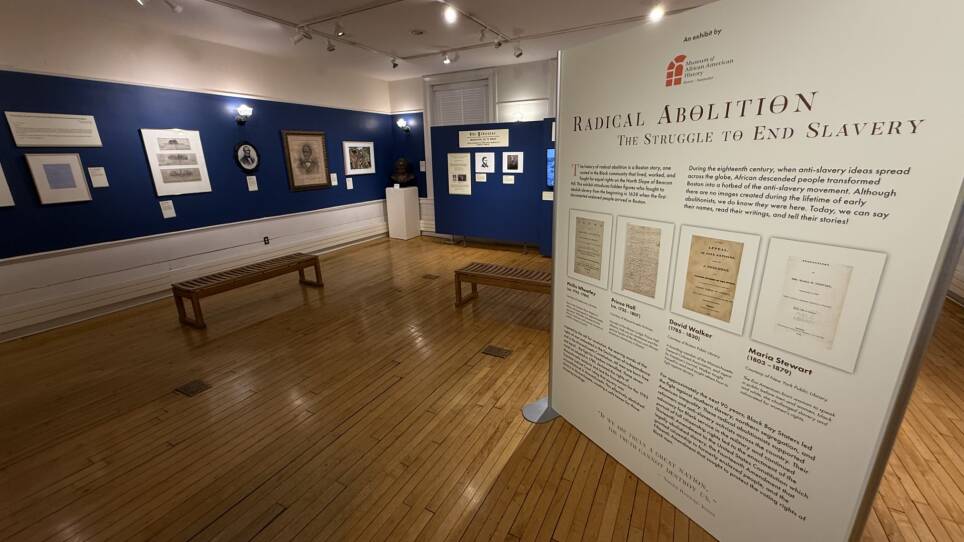Massachusetts’ Museum of African American History learned Wednesday night a three-year federal grant was terminated. Its leader worries their work is at risk after President Donald Trump issued an executive order targeting the Smithsonian last month.
The order claims the institution, which includes the National Museum of African American History and Culture, has “come under the influence of a divisive, race-centered ideology” and that alleged efforts to “rewrite history” have fostered “a sense of national shame.”
Noelle Trent, president of the state’s Museum of African American History, is concerned that Trump’s order calls for the Smithsonian to reframe history and ignore the racial injustices that museums like hers shine a light on.
“There is concern around the highest office in the land saying, ‘Perhaps this is not important or significant’ — how would that trickle down not only to our audience, but into our ability to continue to do our work,” she told GBH News.

The museum, a private nonprofit with locations in Boston and Nantucket, operates on an annual budget of around $3 million. They recently secured a $500,000 grant through the Institute of Museum and Library Services, a federal agency, that would provide additional funds over the next three years. The money was earmarked for additional staffing.
But Trent was notified Wednesday night the grant was terminated, effective Tuesday. Trent told GBH News she received a notification letter which read in part, “upon further review, your ILMS grant is no longer consistent with the agency’s priorities and no longer serves in the interest of the United States and the furtherance of the President’s policies.”
The first year’s installment was drawn, Trent said, but they now have to re-examine the budget for next two years. “We remain undeterred and we will continue pursuing funding,” she said.
Trent believes Trump’s overall directive challenges their mission, work and future.
“This is a direct threat to us as an organization and to the hundreds of other organizations like us in the country,” she said. “What is being asked is to minimize and de-prioritize African American history. If we do nothing about that, then who is the next group of people who gets to be potentially erased?”
Felicia McKnight, a Texas tourist who was visiting the museum on Thursday, talked about why it mattered to her to visit sites focused on African American history.
“I absolutely love the National Museum of African American History in D.C. It’s real rich in the overall scope of African American history, but the local museums also tell the African American history regionally,” she said. “So it still plays into the bigger picture of overall history.”
McKnight pointed out how local museums deliver content that enriches culture.
“It’s important because the history is preserved by the particular museums, the curators, and the individuals who studied it. And it’s not taught in school in detail like this, so it makes it come alive,” she said.

Trent says it is important for people to think about what they can do as a community in moments like these.
“I’ve been encouraging people that, if you care about the Museum of African American History or your local museum, that you go and you support it,” she said.
Let history be one’s guide, she added.
“The Museum of African American History exists today because there were individuals in the 19th century who took their very little disposable time and money to invest in the fight for freedom for a future they could not see,” Trent said.





